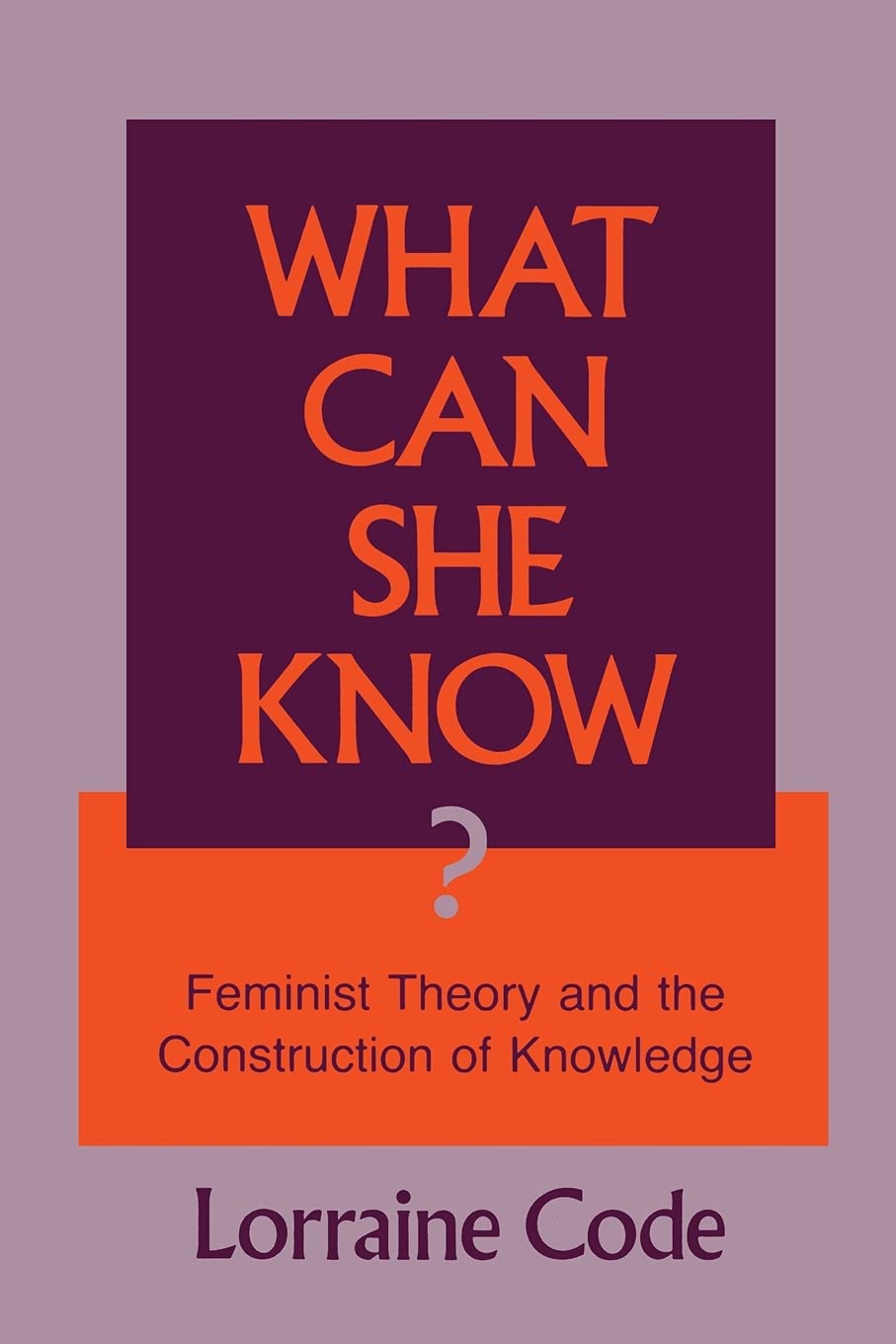
Title

What Can She Know?: Feminist Theory And The Construction Of Knowledge
Processing time: 1-3 days
US Orders Ships in: 3-5 days
International Orders Ships in: 8-12 days
Return Policy: 15-days return on defective items
In This Lively And Accessible Book Lorraine Code Addresses One Of The Most Controversial Questions In Contemporary Theory Of Knowledge, A Question Of Fundamental Concern For Feminist Theory As Well: Is The Sex Of The Knower Epistemologically Significant? Responding In The Affirmative, Code Offers A Radical Alterantive To Mainstream Philosophy'S Terms For What Counts As Knowledge And How It Is To Be Evaluated.Code First Reviews The Literature Of Established Epistemologies And Unmasks The Prevailing Assumption In Angloamerican Philosophy That The Knower Is A Valuefree And Ideologically Neutral Abstraction. Approaching Knowledge As A Social Construct Produced And Validated Through Critical Dialogue, She Defines The Knower In Light Of A Conception Of Subjectivity Based On A Personal Relational Model. Code Maps Out The Relevance Of The Particular People Involved In Knowing: Their Historical Specificity, The Kinds Of Relationships They Have, The Effects Of Social Position And Power On Those Relationships, And The Ways In Which Knowledge Can Change Both Knower And Known. In An Exploration Of The Politics Of Knowledge That Mainstream Epistemologies Sustain, She Examines Such Issues As The Function Of Knowledge In Shaping Institutions And The Unequal Distribution Of Cognitive Resources.What Can She Know? Will Raise The Level Of Debate Concerning Epistemological Issues Among Philosophers, Political And Social Scientists, And Anyone Interested In Feminist Theory.
⚠️ WARNING (California Proposition 65):
This product may contain chemicals known to the State of California to cause cancer, birth defects, or other reproductive harm.
For more information, please visit www.P65Warnings.ca.gov.
- Q: What is the page count of 'What Can She Know?' A: This book has three hundred sixty-eight pages. It provides an in-depth exploration of feminist theory and epistemology.
- Q: What type of binding does this book have? A: The book is a paperback edition. This makes it lightweight and easy to handle for reading.
- Q: Who is the author of 'What Can She Know?' A: The author is Lorraine Code. She is known for her significant contributions to feminist epistemology.
- Q: What are the dimensions of this book? A: The book measures six inches in length, zero point nine four inches in width, and nine point zero two inches in height. These dimensions make it a convenient size for reading.
- Q: What is the main theme of 'What Can She Know?' A: The main theme is the exploration of knowledge construction through a feminist lens. It challenges traditional epistemological views.
- Q: Is this book suitable for beginners in feminist theory? A: Yes, it is accessible for beginners. The writing style is engaging and provides a comprehensive introduction to the subject.
- Q: How does this book approach the concept of knowledge? A: It approaches knowledge as a social construct. The author emphasizes the importance of context and relationships in understanding knowledge.
- Q: What audience is this book intended for? A: It is intended for philosophers, political scientists, and anyone interested in feminist theory. It raises critical debates on epistemological issues.
- Q: Can this book be used in academic courses? A: Yes, it is suitable for academic courses. Its insights can enhance discussions in feminist theory and epistemology classes.
- Q: What cleaning or care is recommended for this book? A: Keep it in a dry place and avoid exposure to direct sunlight. This helps preserve the condition of the paperback.
- Q: Does this book contain adult content? A: No, the content is suitable for a general audience. It focuses on theoretical discussions rather than explicit material.
- Q: What if the book arrives damaged? A: If the book arrives damaged, contact the seller for a return or replacement. Most sellers offer return policies for such issues.
- Q: Is there a warranty for this book? A: Typically, books do not come with warranties. However, check with the seller for any specific return policies.
- Q: How do I store this book to keep it in good condition? A: Store it upright on a shelf, away from moisture and heat. This will help maintain its physical integrity.
- Q: What are the key issues examined in this book? A: It examines the politics of knowledge and the distribution of cognitive resources. The book critiques mainstream epistemologies.
- Q: Can I gift this book to someone interested in philosophy? A: Yes, it makes a great gift for someone interested in philosophy or feminist theory. Its engaging content is thought-provoking.

